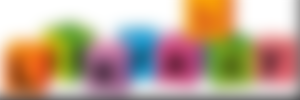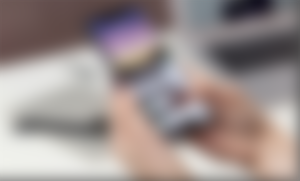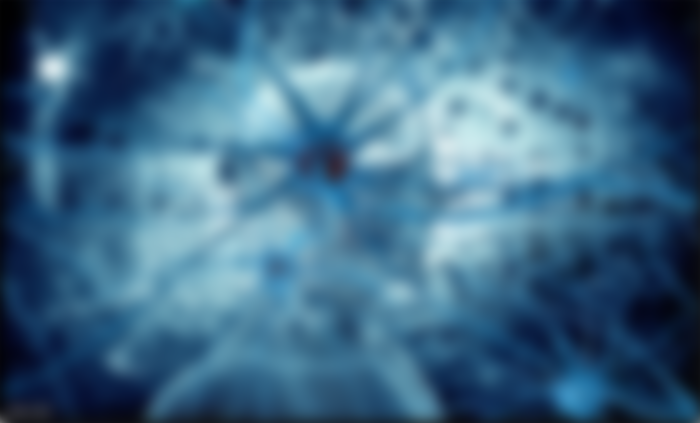
Today, I am writing about a type of literacy that is extremely rare nowadays, primarily due to the presence of a large number of electronic media. I notice that every day. Most people very often manage to keep their attention on the bull, which is why I am writing to you today about
Attention literacy / algorithmic literacy

As a consequence of the previous two illiteracies, the real world pandemic, for decades, is in fact the one we notice the least: attention illiteracy. This biologically limited resource has never been under greater pressure and demand. As a rare and precious ore, everyone is looking for it. One of Google's mantras is that 'money follows attention': whoever manages to hire it, attracts it, is automatically in a better position to monetize it. Attention is capital. Today, instead "spare me some change we hear spare me a share"
We really live in an ‘attention economy’ and this is seen in the number of books, articles and debates that all try to conceptualize the same problem: we are all overwhelmed by content, we are all tired, frustrated and anxious because of it, we are all permanently distracted and often emotionally confused by the paradoxical demands that are sent to us through various channels in very convincing ways. Professional emotional vampires have found hundreds of methods to trigger our impulse, and thus attention, in their favor, leaving us to wander through our daily lives in the fog and dizziness of FOMO (fear of missing out), feelings of inadequacy and anxiety, incapable of self-reflection , empathy and quality decisions.
Attention literacy is not only a problem of today's world, but it is also becoming one of the biggest barriers to our education and functioning in the future. ‘4. the ‘industrial revolution’ requires a much greater reliance on self-directed learning and training - outside official institutions - on the internet, in ‘massive open online courses’ (MOOCs) and in various professional groups and forums. It requires strong, almost ascetic, focus, and strength to control impulse and resist hypersurfing; not to disappear, sometimes for hours, in the endless meanders of the Internet, the virtual worlds of various games and the endless circus of YouTube, Netflix and other entertainment platforms. It is very difficult to do in a world of countless distractions.
Why do we suffer from so much illiteracy of attention? Lack of awareness and training about how archetypal narratives and our impulses work is certainly the main reason. However, there are environmental factors that contribute significantly to this. As Joseph Heath also pointed out, we live in a civilization that is cognitively the most demanding of all we have had so far, and that has inherent, consciously embedded, commercially driven predatory relationships with our attention and our daily time. Two technological phenomena reinforce this illiteracy.
One is ubiquitous algorithms, as one of the primary ways in which modern people receive the mediation of their on-screen - and that largely means ‘real’ - realities. Their task is not to give us what we really need the most, but what is most commercially useful for their platforms and their advertisers. That’s right, in the beginning it’s usually what we really need, as a great profiling factor, but very quickly some other dynamics become part of the approach.
Algorithms are a training system for automating and ‘outsourcing’ our attention and the criteria we use to engage it. The result: the attention economy makes money, we ‘earn’ insomnia and the loss of common sense. ‘Algoi’ can help us find what we think we need, but at the same time they endlessly hinder and manipulate us. Again, behind everything sits our cognitive preferences, our illiteracy of attention and impulse, and the socio-political system designed to use them consciously. Algorithms are just part of the story. Perhaps another problem is even greater: the conscious incorporation of dependencies into our operating platforms.

Mobile phones, with the exception of "pacemakers" and "dildos", are the most intimate personal technological devices of today. Many studies show that we use them more than a hundred times a day, and we touch more than a thousand! There is no person in our lives who receives the same treatment. There is a reason for that. Both major mobile platforms - iOS and Android - as well as most social networks, are designed to create physical dependence on users, in the same way that machines in a casino or a reward system in computer games work. We are ‘hooked’ on notifications, permanent micro-doses of dopamine, neurochemical addictions. Mobile phones have become dopamine pumps.
These pumps affect our future the most: our young people. We rely on them to get us out of the current nightmare that we have created ourselves, by looking at the world with different eyes, by being different politically, commercially, socially. Different in the sense of ‘better than us’. If, however, we look at who are the most frequent visitors to new technology addiction clinics, which are sprouting faster and faster in various countries, I wonder… Narrative, impulsive and illiterate attention makes us physically ill.
Attention illiteracy is in fact ‘attention obesity’, tickling with distractions to satiety, which kills our ability to focus on other, more important things. No one sleeps in front of the polling station to be the first in the morning to give their contribution to the functioning of democracy. But we sleep in front of Apple stores when they launch a new product; we spend hours in rows to be among the first to run to the store on Black Friday and fight over a toaster at a discount. We have become fantastic consumers, and very bad citizens. That Friday is rightly called ‘black’, there is nothing bright or positive in it. That is why many "confusing" and "unexpected" things happen during these Crown days, in our societies. We let them happen, blind to the forces acting on us.
This is a real epidemic that needs to be talked about. It prevents us from seeing current and many upcoming problems. Kovid-19 will be a walk in the park compared to the impending climate catastrophe. And we failed to organize ourselves to provide even the simplest protective equipment to doctors who are fighting for our lives! We lost our jobs within a few days, some countries and no food. We are not writing well for the future if we do not become literate with our attention.



Odlično obrazloženo, slažem se u potpunosti. Patimo od nedostatka pažnje jer se živi ubrzanim tempom, sve je postalo na klik, sve mora odmah, sve manje strpljenja kod ljudi a sve to vodi u jedan veliki haos i destrukciju.